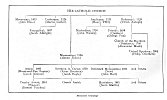
The Amish, by A.M. Aurand, [1938], at sacred-texts.com

The Amish, by A.M. Aurand, [1938], at sacred-texts.com

Click to enlarge
Mennonite Genealogy
(In preparing this study of the "plain people" the author has had opportunity to draw heavily from a general knowledge of them, by intimate contact and otherwise, as well as from a rich store of information to be found in numerous books and magazines, and such as issue from the pens of various contributors to the German folk societies. These would be too numerous to mention here, though it is deemed fitting to give general credit to them in this way, since they justify many of our findings, and in turn they authenticate their own). *
ISN'T IT TRUE that the average person likes to know something odd or curious about the "other fellow," while assuming that there is little or nothing odd about himself?
Isn't it true that neither the Red Man, nor the Black, nor any other in America, present social studies as interesting or entertaining as the Germans settled in Pennsylvania—so-called Pennsylvania "Dutch?" Of these types there are many communities where the peculiarities of these people are strange and interesting enough to furnish constant material for the magazines, newspapers, novels, plays, etc.
There are perhaps none so quaint or odd, as the so-called "plain people" of the southern counties of the State. Lancaster is especially rich in this lore, but other counties are plentifully populated with these "sects" which make Pennsylvania more or less out-standing in America.
To understand the background of these people, one should read a great deal of history, particularly religious history. The Mennonites and the Amish, and many others of similar persuasion, are what they are because of their religion hardly for any other reason.
But, like you and I, they must live twenty-four hours every day, and it is in these twenty-four hours that they live in such a way as to provide for the non-sectarian a curiosity to know more about the people with the broad hats and old-fashioned bonnets.
We generalize somewhat in the inclusion of several of the plain sects in this account, although specifically we ought to say that "the Amish do so and so;" or, "the Mennonites," or whatever they may be. Generally it must be taken to mean that the extremists in this account are the Amish.
It is a comprehensive social study of them that we give you now—in a brief, condensed version!
3:* See "Historical Account of the Amish and Mennonites" on page 28.